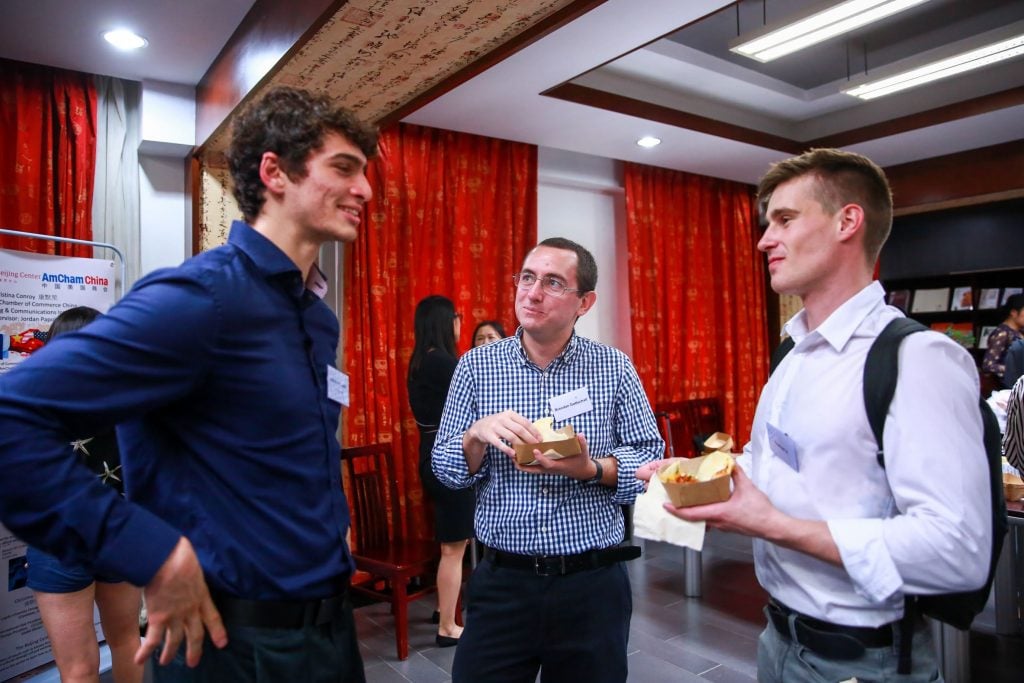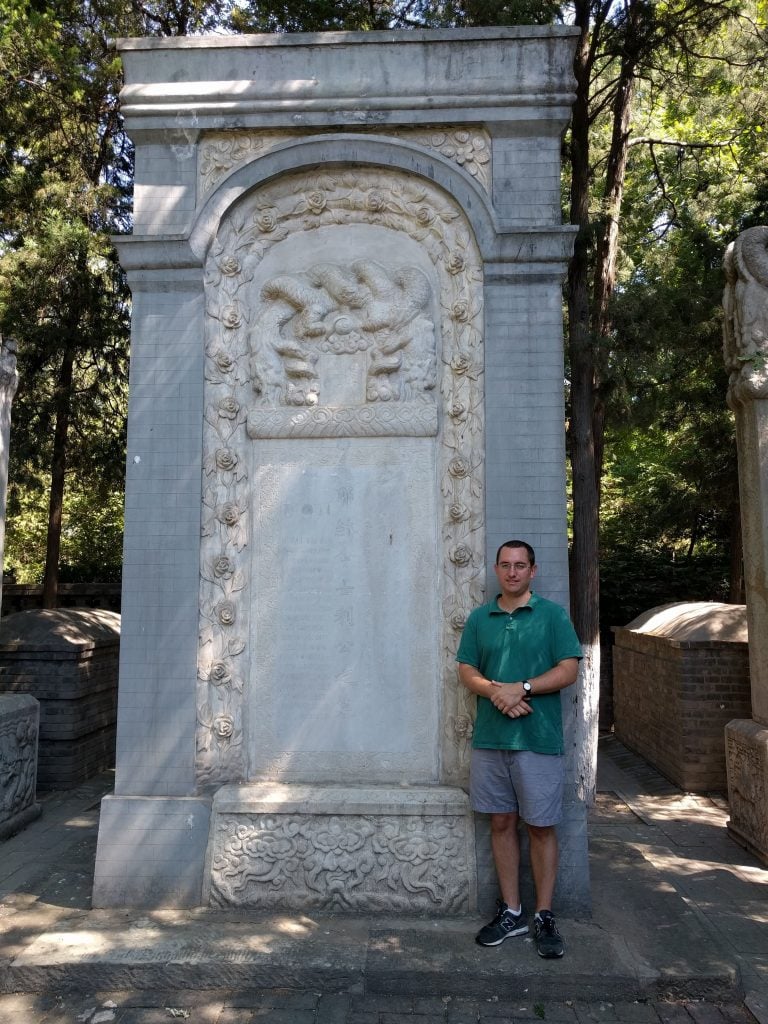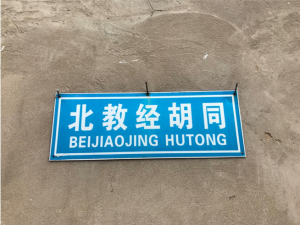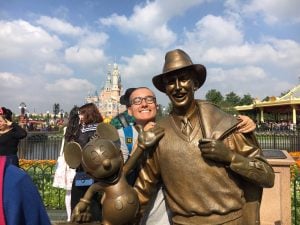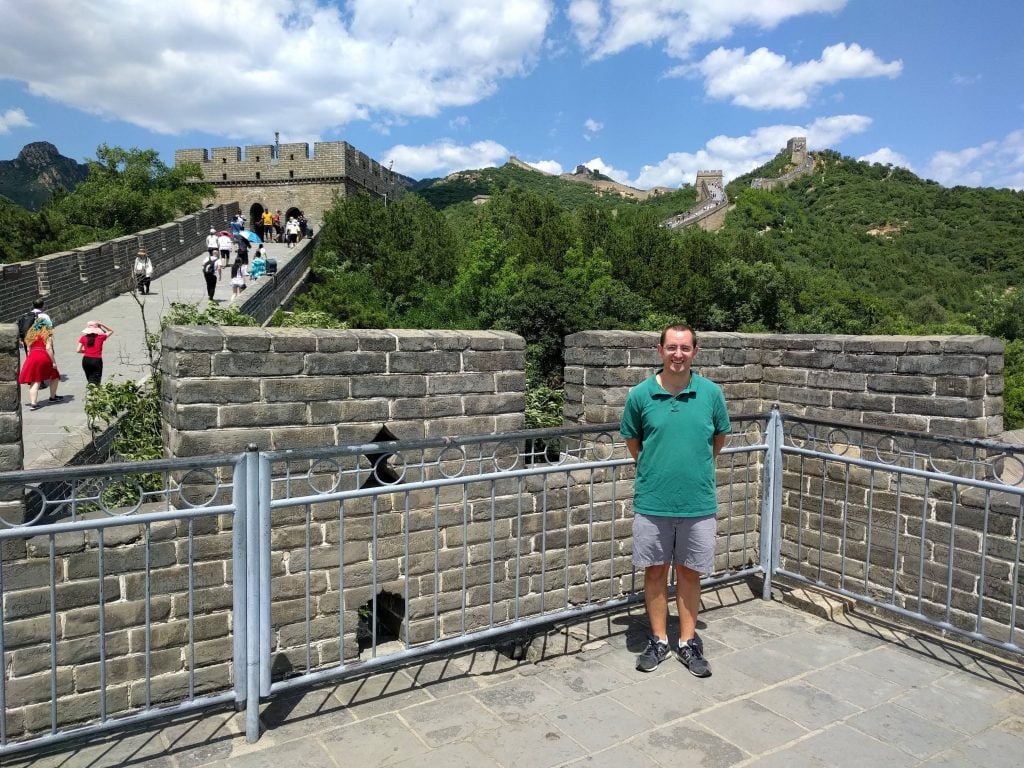
Interview with Brendan Gottschall, Jesuit Scholastic
July 12, 2018
Can you briefly introduce yourself?
My name is Brendan Gottschall. I’m a Jesuit scholastic of the current Maryland province of the Society of Jesus, soon to be the East Coast Province of the US Jesuits. I am currently a graduate student of Philosophy at Fordham University working on a master’s degree as part of my first studies. I entered the Society in 2014 and took vows in 2016.
Where did you go for college?
I went to Georgetown University for my undergraduate and studied economics and minored in government and Chinese. So I took 4 years of Chinese in my undergraduate but I graduated in 2012, but I haven’t really used Chinese since then, until now.
You mentioned you were studying Economics as an undergrad, but you switched to Philosophy as a graduate student. What made you decide on the change?
Well in order to become a Jesuit priest you have to study philosophy. So immediately after taking vows I was missioned to study philosophy.
Then what made you decide that you wanted to be a Jesuit?
I grew up Catholic, so I saw priests in my home parish as role models and so when I was really little, when people asked me what I wanted to be when I grew up I would say that I wanted to be a priest. Then when I was in high school, those feelings and desires were still there but I felt like I needed to experience the world so I kind of ignored them through college. During college I sort of reconnected with my faith in a deeper way and then also with this call to become a priest. At that time I met Jesuits who lived a different way of priesthood. They weren’t just parish priests that said Mass and heard confessions and all the regular parish stuff, they were also professionals — teachers, professors, lawyers, doctors. So that really attracted me to the Jesuits, but when I graduated college I still wasn’t ready yet. So I actually worked for two years in an economic consulting firm in Chicago, doing the professional thing before I finally decided to answer the call.
As a member of the Society of Jesus how did you come to be interested in China?
My interest [in China] really came from my undergraduate studies in Chinese. I had not had the opportunity to use my Chinese in any substantial way for the two years that I was working, nor in the two years in the novitiate. But, in talking with my provincial superior, I mentioned that I had this background and asked him, you know, is it something that I should keep alive, and he said yes definitely. He said “Go to China this summer.” So that’s why I’m here! Really to explore how my interest in Chinese can be a part of my vocation as a Jesuit.
What have you been doing while you’ve been here?
I’ve been on a study tour, visiting Macau, Hong Kong, Xi’an, Hebei and now I am here in Beijing. Since I’ve been here in Beijing, TBC has arranged for me to take some language classes 3 hours a day Monday through Friday, trying to revitalize and rehabilitate my Chinese skills. Also through TBC I’ve been able to go on some trips to explore the sites here in Beijing and get to know the culture here a little more.
What places have you visited?
Tiananmen square and the Forbidden City, and I’ve also been to the Great Wall and I am hoping to go to the Lama temple and The Summer Palace. And anything else you can recommend?
Is there a place that you’ve found especially interesting, of the places that you’ve visited? Or maybe a thing, just a thing that you’ve found to be very interesting during your stay here in Beijing?
As I was thinking about my experiences so far, one thing that’s stuck out to me was going to Tiananmen Square and to the Forbidden City, I was able to join a group of students from Belgium, from University of Antwerp. It was interesting for me, because usually when I engage with a different culture it’s through my lens, but being with them from a third culture, it was like being able to not only look at Chinese culture through my own lens but also see them looking at Chinese culture through their own lens. And then to gain a different insight by looking at it from a different angle. One example was when we were in the Forbidden City and were talking about the imperial court and the emperor and the practices surrounding the emperor in China. The tour guide was making a connection, and the Belgians were making a connection with their own monarchy and how it used to be and how it is now. Obviously there is no American monarchy so I can’t make that connection but it was interesting to be able to see them look at the historic Chinese emperor and compare it to the historic and even present day Belgian monarchy.
Why did you decide to come to TBC?
Well, mostly because of the Jesuit connection. Also, I had met folks who had been here before, actually I have a second cousin who had participated in TBC as an undergraduate. Then meeting Jesuits who were involved, it just seemed like a great place to be. And I wanted to be in Beijing having had experience before in Taipei, and I’ve been to Shanghai, and wanted to be in Beijing to capitalize on the experience.
In what way is TBC helping you engage in dialogue and research China?
Well, besides the obvious like giving me a place a to live and helping me to make connections on a local level, what I found most helpful is just the folks here in the office. Knowing that, you know, if I have any questions there are people with lots of good answers here. That was another thing I have thought of, that often times we can talk about culture, and different cultures in abstract but really it has to be embodied in people, and having a connection here, with the people in TBC is a good way, and an easy beginning I guess I should say, of connecting with people, both Chinese people and other outside people who have come to China and have their own experiences. So, the people here are very helpful in starting to understand, a little better, China.
Any tips and recommendations to any Jesuit scholastic’s considering coming to China?
Generally, I would say the best advice is just to be open to having new experiences and to really work to put yourself out there and to be comfortable with being in awkward experiences because that’s just the reality of being in a different culture, especially China.



